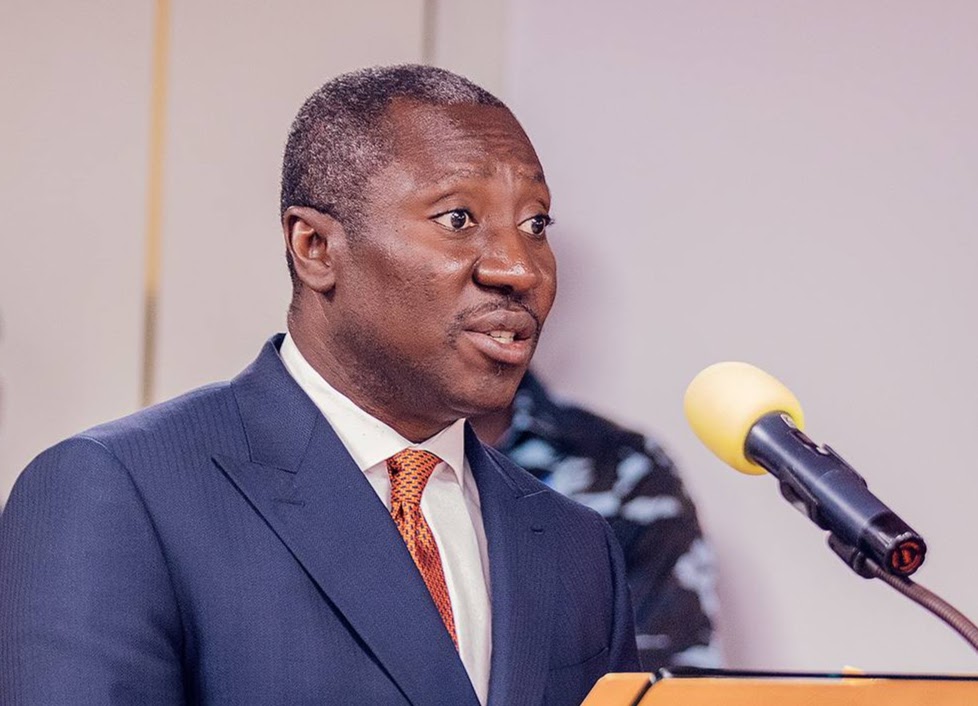Minority Leader Hon. Osahen Alexander Afenyo-Markin has cautioned that Ghana’s democracy faces serious threats from judicial interference, political intolerance, economic mismanagement, and growing corruption.
Addressing Parliament, the Effutu MP painted a grim picture of the nation’s current state, citing worsening economic hardships, labour unrest, environmental degradation, and what he described as a worrying pattern of selective justice and shrinking civic space.
“Ghanaians remain concerned about the economy. While recent indicators show modest macroeconomic gains, these have yet to bring real relief to ordinary citizens. Stabilization means little if the youth remain unemployed and families still struggle with the cost of living,” Afenyo-Markin said.
He expressed condolences to the families of the eight distinguished Ghanaians, including Hon. Dr. Ibrahim Murtala Muhammed, who passed away during Parliament’s recess, describing their lives as reminders of the dignity and courage public service demands.
The Minority Leader accused the government of politically motivated dismissals in the public service, alleging that competent officers had been removed from their positions under directives from the Chief of Staff without due process.
“Suchactions violate constitutional provisions and undermine professionalism in the public sector,” he charged.
Touching on economic challenges, Afenyo-Markin lamented the plight of junior doctors, teachers, and nurses who have gone months without pay. “A government that fails to pay its frontline workers cannot claim to care for its people,” he stated.
He also criticized the One District One Factory (1D1F) initiative, arguing that it had been derailed by excessive bureaucracy and limited private sector engagement. “No economy can grow when political control replaces private initiative,” he stressed, urging the government to make the private sector the true engine of growth.

Afenyo-Markin further raised concerns about the increasing arrests and intimidation of opposition figures, journalists, and citizens. He cited the prosecution of social media activist David Afful Kwadwo Prah (Kwame Nkrumah II) over a livestream, contrasting it with the lack of action over inflammatory remarks by NDC National Vice Chairman Sofo Azorka during the Akwatia by-election.
“Justice cannot be harsh on critics and lenient on those close to power,” he asserted.
The Minority Leader also criticized a recent court ruling that cited George Orwell’s Animal Farm and Robert Mugabe’s quote on free speech, describing it as “a reflection of a worrying judicial mindset that undermines the constitutional guarantee of free expression.”
He declared the Minority’s strong objection to the removal of Chief Justice Gertrude Araba Esaaba Sackey Torkornoo, describing the process as “false, irregular, and unconstitutional.”
According to him, the so-called Pwamang Report remains a “secret document,” warning that if the “false process succeeds, it will endanger every independent constitutional body.”
“If judicial independence can be manipulated in this manner, we should not expect free or credible elections in the future,” he cautioned.
Afenyo-Markin also demanded clarity on an alleged agreement between Ghana and the United States regarding the acceptance of deportees, insisting that any such pact must be subjected to parliamentary scrutiny under Article 75 of the Constitution.
“Ghana’s foreign policy must not be conducted in secrecy, nor should our sovereignty be traded for expediency,” he said.
Despite the grim assessment, the Minority Leader struck a note of optimism, calling for unity and national renewal.
“We cannot afford to lose hope. Ghana has weathered many storms and emerged stronger each time. The Minority will remain the voice and shield of the people — speaking truth to power and working tirelessly for a better Ghana,” Afenyo-Markin affirmed.
Echoing the words of former President Nana Addo Dankwa Akufo-Addo, he concluded: “Let us all be citizens, not spectators — and take an active role in our democracy’s progress.”
